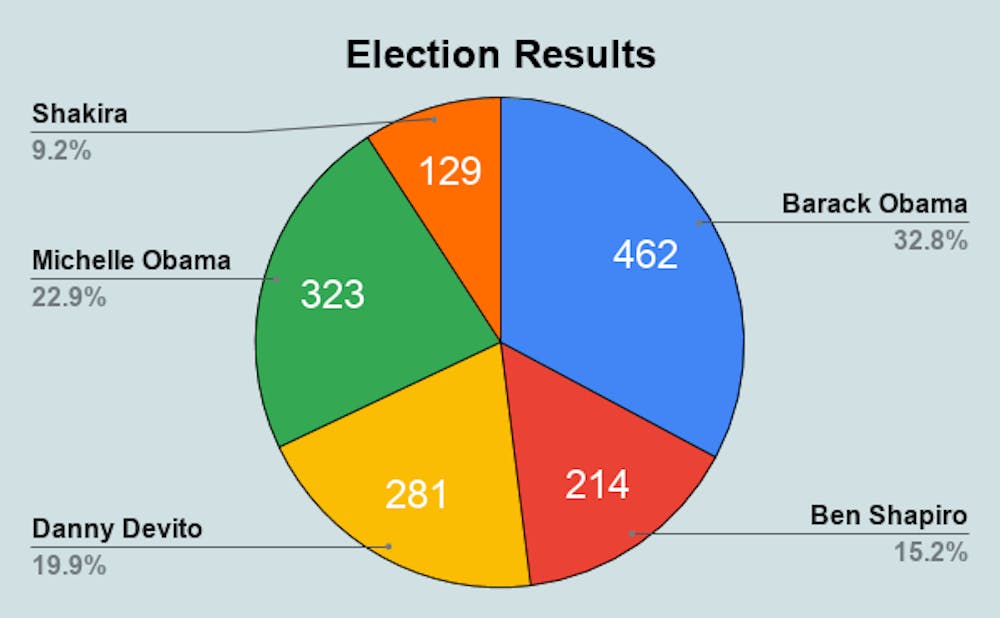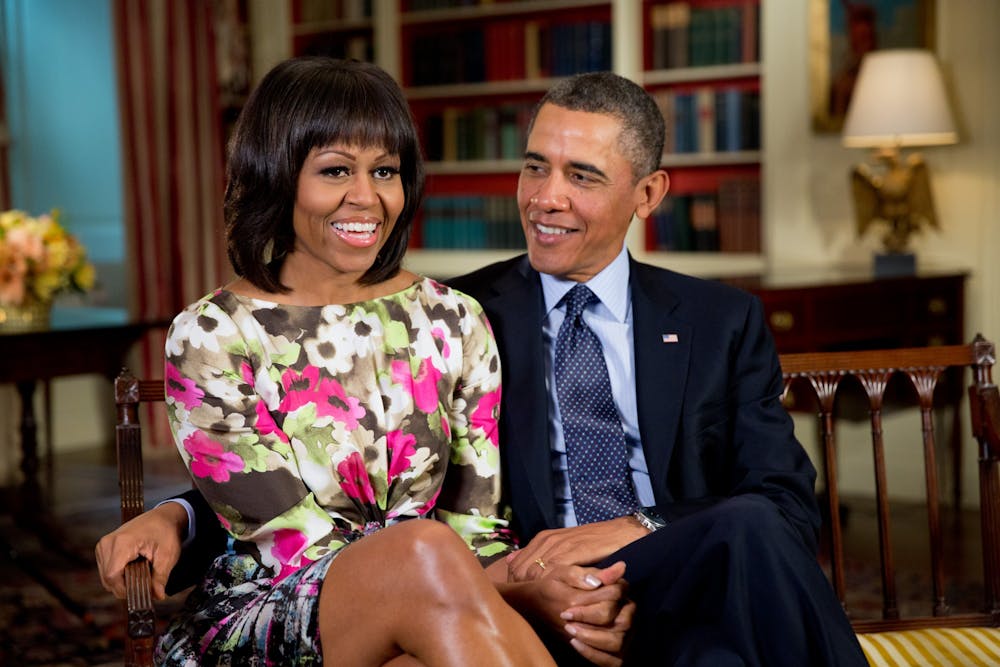On Monday, Nov. 19, Tyler Eddy ’21 announced the election results from the “trial program” of his Student Speaker Initiative, which aims to host two speakers at the University.
The two potential speakers who received the most votes were Barack Obama (462 votes), and Michelle Obama ’85 (323 votes), who together accounted for more than 50 percent of the vote. The other nominated speakers included Shakira, Danny DeVito, and Ben Shapiro. According to Eddy, there were over 1,400 votes submitted, reaching over a quarter of the student body.
In his announcement, Eddy wrote, “The next step is to officially present Michelle and Barack Obama as speakers to the university as the student choices for the trial program. I'll be sure to keep you all up to date as the discussion proceeds.”
Some students had reservations about both the selection process and the initiative more generally. In an email replying to Eddy’s announcement on a residential college listserv, Samantha Goerger ‘20 questioned whether Barack or Michelle Obama would agree to speak, noting that “Michelle doesn’t speak at Ivies, she’s stated this very publicly and wrote it in her memoir.”
Goerger is a former head design editor for the Daily Princetonian.
Goerger also questioned the voting process. “Furthermore, by not using rank-choice voting,” she wrote, “this vote is exceptionally flawed and could result in having a top 2 that are extremely unpopular/divisive … Announcing any of these speakers as the ‘undergraduate choice’ is, therefore, unrepresentative and unethical.”

This pie chart, sent as a part of Eddy's announcement, shows the number of students who voted for each potential speaker.
Graphic Courtesy of Tyler Eddy ’21
Eddy subsequently defended the process against students’ criticism, asking students to consider, “If the list was entirely comprised of people that you liked and wanted to see on campus, would you still have [the] issues with the program that you do?”

He also said that, although it is inevitable that some nominated figures would reject the offer to speak, it is ultimately best to select the speakers with the most votes.
In an email to The Daily Princetonian, Eddy stressed that he has received much more support than criticism for the initiative, and that he incorporated much of the feedback he received early on from students in his current plan.
On the issue of finances, Eddy said, “The hope is that the funds for hosting speakers would come from those already existing already within the departments and various speaker series on campus. Essentially, the speakers elected would be slotted into an already existing position a series or department had intended to fill but hadn’t yet decided which speaker it would be.”
On Nov. 11, Eddy published an op-ed in the ‘Prince’ arguing for the initiative. In it, he proposed a long-term project, a “permanent, web-based, semesterly program in which undergraduates will be able to elect the speakers they would most like to see on campus.”

Eddy emphasized that such a program would promote beneficial conversations on campus. “Students should be able to pair two or more speakers in order to create dialogues that don’t exist but which we truly need. Learning occurs through synthesis; lasting progress occurs through compromise,” he wrote.
Ultimately, the initiative is about giving students their own voice, he argued.
“It’s high time that the University provides the opportunity for its students to select speakers for themselves,” he wrote. “Not simply because we want it, but also because we need it. Because you need it.”








